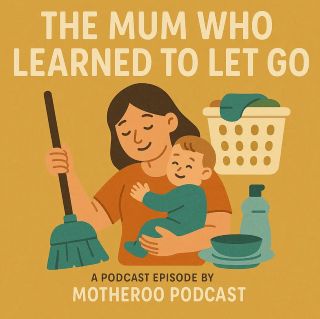Overworked mothers often swap precious sleep for late-night scrolling, streaming, or chores—a pattern increasingly labeled momsomnia or “revenge bedtime procrastination.”
Cutting corners on rest may feel like a small rebellion, yet decades of research show it undermines mental, physical, and family health. Below is an evidence-based deep dive into why moms fall into this trap, what it does to their bodies and minds, and—most importantly—how to reclaim restorative sleep without sacrificing hard-won moments of autonomy.
What Exactly Is Momsomnia?
Momsomnia refers to a voluntary delay of bedtime—despite mounting fatigue—to enjoy uninterrupted leisure once children are asleep. Behavioral scientists classify it as a form of bedtime procrastination—postponing sleep with full awareness of tomorrow’s consequences and without an external excuse such as illness or night shift work. Unlike classic insomnia, moms experiencing momsomnia can typically fall asleep when they finally try; they simply start far too late.
Prevalence and Demographics
- Up to 71.9% of parents report sleeping <7 h at least three nights per week.
- New mothers average just 4.4 h of sleep in week 1 postpartum, rising to only 7.3 h by month 3—yet still suffer fragmented rest with <4.1 h of uninterrupted sleep.
- Longitudinal data show maternal sleep duration remains 20 min shorter and more disrupted as far as six years after birth.
- Mothers lose an hour of sleep nightly in the first 3 months; fathers lose 15 min, highlighting gender disparity.
Why Mothers Are Especially Vulnerable
1. The Mental Load of Caregiving
Mothers shoulder a greater share of nighttime caregiving, leading to shorter, more fragmented sleep and higher cumulative stress.
2. Stress-Driven Hyperarousal
Postpartum hormonal shifts (elevated cortisol, prolactin) and vigilance for infant cries keep many mothers in a state of “alert insomnia,” even when babies sleep.
3. Screen Time & Blue Light
Scrolling under the covers exposes moms to blue-wavelength light (460-480 nm), which suppresses melatonin up to 50% in a dose-dependent fashion. Even 30 min of nighttime phone use can delay circadian rhythms and worsen sleep latency.
4. Quest for Autonomy
Qualitative studies reveal mothers describe late-night solitude as “mini-vacations” allowing personal identity beyond caregiving. The psychological payoff reinforces the habit despite fatigue.
Short-Term Consequences
| Domain | Evidence-based Impact | Key Data |
|---|---|---|
| Mood & Irritability | Sleep-deprived mothers report 84.3% higher parenting stress and guilt. | 8 in 10 parents feel overwhelmed when short on sleep. |
| Cognitive Function | Poor sleep continuity impairs working memory and maternal sensitivity during play interactions. | Objective WASO linked to declining responsiveness over a 10-min play session. |
| Decision-Making | Delayed bedtime correlates with increased impulsivity the next day. | RSP linked to general procrastination traits. |
Long-Term Health Risks
- Cardiometabolic Disease – Chronic sleep <6 h elevates hypertension and type 2 diabetes risk.
- Depression & Anxiety – Maternal sleep duration mediates the pathway between toddler sleep problems and maternal depressive symptoms.
- Parent–Child Interaction – Persistent maternal fatigue predicts harsher or less sensitive parenting, undermining child emotional regulation.
Impact on Children’s Sleep & Development
- Infants of anxious or depressed mothers show more night waking and shorter nocturnal sleep.
- Excessive maternal screen use during pregnancy and postpartum predicts shorter infant sleep by 20–22 min per 24 h.
- Blue light exposure before bed in pregnancy disrupts maternal melatonin, linked to preterm birth and low birthweight risks.
Evidence-Based Coping Strategies
A. Rebuild Sleep Opportunity
- Set a Hard “Digital Sunset” one hour before target bedtime; blue-light blocking lenses can cut melatonin suppression by ≥23%.
- Anchor Wake Time within a 30-min window daily to stabilize circadian rhythms.
- Schedule Leisure Intentionally—designate two “me-time” evenings per week and commit to earlier sleep the rest.
B. Optimize Sleep Hygiene
- Keep bedroom temperature 18-20 °C and light <30 lux.
- Reserve bed for sleep and intimacy only; separate “scroll spot” if you must use devices earlier.
- Limit caffeine after 14:00; it prolongs sleep latency by 40 min in sensitive individuals.
C. Share the Load
- Alternate night-wakings with partners; actigraphy shows mothers sleep 28 min longer on fathers’ “on-call” nights.
- Enlist family or babysitters for early-evening childcare to create pre-bed leisure without pushing bedtime later.
D. Behavioral Therapies
- CBT-I (Cognitive Behavioral Therapy for Insomnia) adapts well to postpartum schedules and reduces sleep onset latency by 35% in randomized trials.
- Mindfulness-Based Stress Reduction lowers bedtime worry and improves sleep efficiency by 3.8%.
E. Tech & Tools
| Tool | How It Helps | Evidence |
|---|---|---|
| Blue-light blocking glasses | Preserve melatonin production | ↑ Melatonin 58% after 2 h evening wear |
| White-noise machines | Mask infant rustling sounds, reduce maternal arousals | ↓ Night awakenings 20% in new parents |
| Smart bulbs (2000 K) | Emit minimal blue light | 30 lux amber light shows no melatonin suppression |
When to Seek Professional Help
- Inability to sleep despite opportunity ≥3 nights/week for ≥3 months.
- Daytime impairment (mood, performance) plus EPDS score ≥13 or GAD-7 ≥10.
- Nighttime fears, intrusive thoughts, or checking rituals suggest perinatal OCD warranting specialist referral.
Frequently Asked Questions
“My baby finally sleeps; why can’t I?”
Hyper-vigilant arousal and entrenched habits make it hard to downshift. Start a wind-down ritual—journaling, stretching, reading paper books—to cue sleepiness.
“Is bedtime scrolling really that bad?”
Yes. Five consecutive nights of 60-min phone use at 23:00 delayed melatonin onset by 90 min and cut REM sleep by 17%.
“Does breastfeeding doom my sleep?”
Breastfeeding mothers average 25–33 min less nocturnal sleep but can offset loss with daytime naps and partner support.
Myth-vs-Fact Cheat-Sheet
| Myth | Reality | Citations |
|---|---|---|
| “I’ll catch up on weekends.” | Recovery sleep rarely reverses cognitive deficits from chronic restriction. | 36 |
| “Blue-light filter apps are enough.” | Hardware filters or amber bulbs outperform software filters, which reduce only ~12–15% of blue wavelengths. | 32 |
| “My child’s sleep alone determines mine.” | Maternal stress, bedtime, and screen habits predict sleep independent of infant patterns. | 25 & 33 |
10-Step Action Plan for Reclaiming Sleep
- Write down an ideal wake-time; count back 8 h for target bedtime.
- Set phone “Do Not Disturb” 60 min before that time.
- Dim overhead lights; switch to amber lamp.
- Complete hygiene routine early to avoid second wind.
- Journal three tasks deferred to tomorrow—off-load mental load.
- Choose one relaxing, screen-free activity ≤30 min.
- Practice 4-7-8 breathing for 2 min in bed.
- If awake after 20 min, move to dim-light chair and read until drowsy.
- Record wake-time; avoid >30-min weekend sleep-in.
- Review progress weekly; adjust leisure windows, seek CBT-I if no improvement after 4 weeks.
Policy & Workplace Implications
- Flexible Scheduling: Moms with adjustable start times report 33 min longer sleep.
- Paid Leave: Longer maternity leave correlated with better sleep 6 months postpartum in a multinational cohort.
- On-site Lactation & Rest Pods: Reduce nighttime pumping and late-night prep work, shortening bedtime delay.
Conclusion
Momsomnia thrives at the intersection of caregiving overload, blue-lit technology, and an understandable urge for autonomy. Yet the silent trade-off—stolen sleep—extracts steep costs from maternal health, parenting quality, and family well-being. Reclaiming rest demands both individual habit shifts and systemic support, but the payoff is profound: sharper cognition, steadier mood, warmer parenting, and, ultimately, more energy to savor those fleeting slivers of me-time—this time without the fog of fatigue. Continuous, restorative sleep is not a luxury for mothers; it is foundational healthcare. Armed with evidence-based strategies and a village of support, moms can finally tuck momsomnia into bed—for good.
- https://www.babysleep.com/sleep-advice/what-is-momsomnia-and-what-can-i-do-about-it/
- https://happiestbaby.com.au/blogs/parents/revenge-bedtime-procrastination
- https://www.happiestbaby.com/blogs/parents/revenge-bedtime-procrastination
- https://www.cradlewise.com/blog/revenge-bedtime-procrastination/
- https://sleepopolis.com/education/parents-sleep-deprivation-study/
- https://www.sleepmeeting.org/study-quantifies-sleep-loss-disruption-experienced-new-mothers/
- https://www.sciencedaily.com/releases/2019/02/190225192116.htm
- https://mumsgrapevine.com.au/2019/03/mums-less-sleep-dads/
- https://bmjopen.bmj.com/content/12/8/e060558
- https://pmc.ncbi.nlm.nih.gov/articles/PMC8576759/
- https://pmc.ncbi.nlm.nih.gov/articles/PMC6582939/
- https://pmc.ncbi.nlm.nih.gov/articles/PMC5664311/
- https://pmc.ncbi.nlm.nih.gov/articles/PMC10173890/
- https://pubmed.ncbi.nlm.nih.gov/21164152/
- https://www.chronobiologyinmedicine.org/journal/view.php?number=167
- https://www.healthline.com/nutrition/block-blue-light-to-sleep-better
- https://www.sbm.org/healthy-living/blue-in-the-face-the-effects-of-blue-light-on-sleep
- https://www.yahoo.com/lifestyle/why-moms-are-staying-up-late-at-night-sacrificing-sleep-for-sanity-with-revenge-bedtime-procrastination-its-as-close-to-vacation-as-you-can-get-172207085.html
- https://the-motherload.co.uk/the-cost-of-being-a-parent-who-stays-up-late-for-alone-time/
- https://www.scarymommy.com/lifestyle/revenge-sleep-procrastination
- https://pubmed.ncbi.nlm.nih.gov/29570568/
- https://www.ajmc.com/view/maternal-sleep-duration-self-efficacy-can-play-a-role-in-maternal-depression
- https://pmc.ncbi.nlm.nih.gov/articles/PMC9319039/
- https://news.flinders.edu.au/blog/2020/10/15/how-screentime-affects-babys-nighttime/
- https://bmjopen.bmj.com/content/11/6/e044525
- https://pmc.ncbi.nlm.nih.gov/articles/PMC11719367/
- https://www.outofyourordinary.com/blog/revenge-bedtime-procrastination-why-autism-parents-need-to-avoid-this-common-obstacle
- https://8sheep.com/blogs/news/momsomnia
- https://pmc.ncbi.nlm.nih.gov/articles/PMC8033452/
- https://www.dovepress.com/correlation-between-maternal-anxiety-during-mid-pregnancy-and-subseque-peer-reviewed-fulltext-article-IJGM
- https://www.sciencedirect.com/science/article/pii/S2352721822001139
- https://www.thebump.com/a/revenge-bedtime-procrastination
- https://www.livingsafer.com/why-moms-sacrifice-sleep-for-alone-time/
- https://sleepopolis.com/education/tips-for-beating-momsomnia/
- https://familysleep.ca/blog/2018/the-third-choice
- https://amybraunlcpc.com/blog/momsomnia
- https://www.mother.ly/life/i-sacrifice-sleep-for-me-time-and-its-hard-to-stop/
- https://teenswithadhd.com/its-called-revenge-bedtime-procrastination/
- https://pmc.ncbi.nlm.nih.gov/articles/PMC10337477/
- https://onlinelibrary.wiley.com/doi/10.1111/jsr.13575












